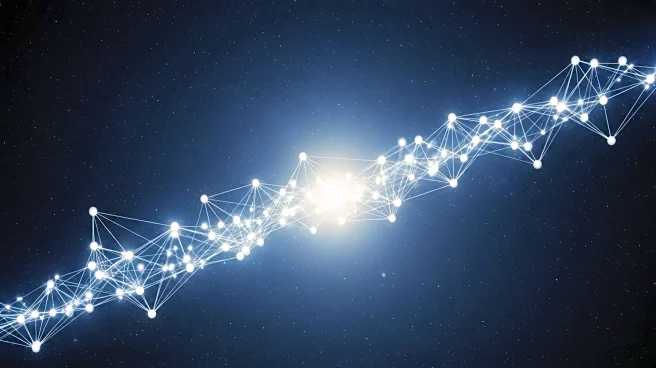What's Happening?
Researchers are exploring a new framework called the quantum memory matrix (QMM) to address contradictions between general relativity and quantum mechanics, particularly concerning black holes, dark matter, and dark energy. The QMM posits that information, rather than matter or energy, is the fundamental component of reality. This theory suggests that spacetime is composed of discrete cells that store quantum imprints of interactions, preserving information even as black holes evaporate. The framework also proposes that the distribution of quantum information influences spacetime geometry, potentially explaining the behavior of dark matter and the accelerated expansion of the universe attributed to dark energy.
Why It's Important?
The QMM framework offers a novel approach to resolving longstanding puzzles in physics, such as the black hole information paradox and the nature of dark matter and dark energy. By treating information as a fundamental aspect of the universe, this theory could unify disparate areas of physics and provide a deeper understanding of cosmic phenomena. If validated, QMM could revolutionize our understanding of the universe's structure and evolution, impacting fields ranging from cosmology to quantum computing.
What's Next?
The QMM framework is currently being tested on quantum computers, with promising results showing high accuracy in recovering quantum states. Further research will focus on refining the model and exploring its implications for other forces of nature. Peer-reviewed studies are underway to validate the theory's predictions about dark matter and dark energy. If successful, QMM could lead to new technologies and methodologies in quantum computing and cosmology.
Beyond the Headlines
The concept of a cyclic universe proposed by QMM challenges traditional views of cosmic history, suggesting multiple cycles of expansion and contraction. This idea raises philosophical questions about the nature of time and the universe's ultimate fate. The framework also highlights the potential for information theory to bridge gaps between classical and quantum physics, offering a unified perspective on the cosmos.









